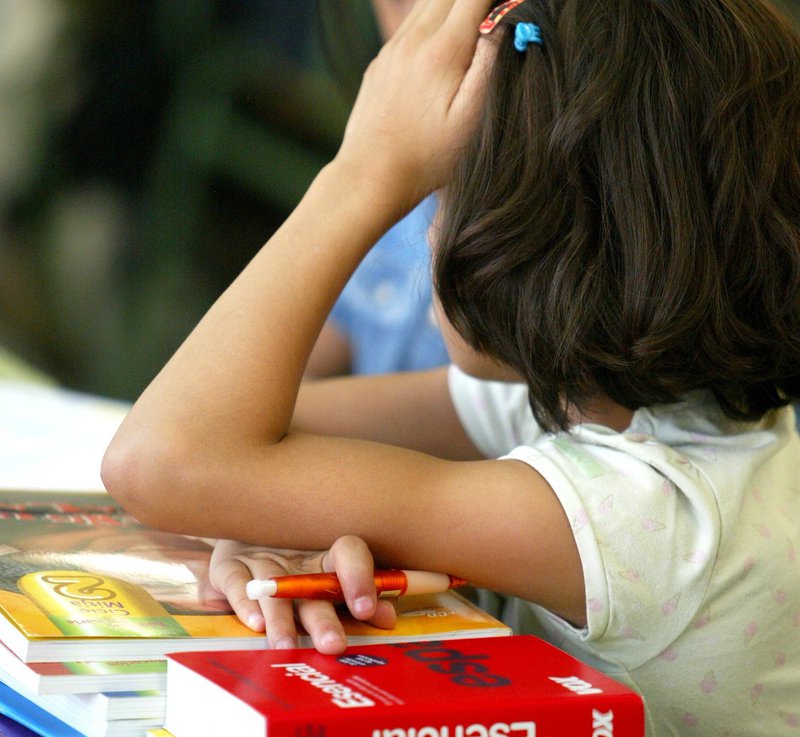focus on english. emma doorish
A lesson about learning languages
Our education systems create an environment where a mistake is the worst thing
My first class as a TEFL teacher felt very much like my first day at school. I felt nervous and scared. I opened my classroom to squeals, laughter, one little girl was crying, another little boy was under the table and one had a school bag on his head. I spoke no Spanish, they spoke no English. I took a deep breath, walked into the classroom, sat down on the floor and started to play with a puppet. The children quietened down and came and sat beside me. I saw that they were nervous, too. We played a few games, danced, sang and ended by sitting in a circle playing pass the puppet. The bell rang and my first class was over.
Learning a language is much like our first day at school in that we are brought back to an earlier stage. In our own tongues we are fully capable of communicating, we feel confident and can express ourselves perfectly in an adult way. However, in a new language we don't have those skills. We again experience those feelings of frustration, shyness and the fear of making mistakes. We are out of our comfort zone. We are starting over again.
Children don't seem to share the same obstacles many adults do when learning a language. Perhaps because they are mastering life every day and are more comfortable with not knowing or learning how to do something. As Ken Robinson says, if children don't know, they'll have a go. Ken Robinson is a very famous educator and writer. He has given speeches all over the world and is a pioneer for creativity in learning. He has an amazing talk on TED Talks called 'How schools kill creativity'. Through my own experience of teaching, I see this very often. He believes that our education systems create an environment where a mistake is the worst thing you can do. We have exams that are based on an input and output model of cramming for exams, where there is only one right answer. We are afraid to make mistakes. However he claims that it is through making mistakes, through creative learning that we can break down barriers. That there are always more than one way. That we all have different talents and unfortunately not all are recognised through the examination process.
In English class, young kids get excited, we sing together, we play games and they are always responsive and will use the little language they have with pride. They will try and make mistakes and will try again. If you create a lively interactive environment they become involved in the learning process and enjoy it. Language should be accessible to everyone. No one enjoys sitting down in front of a large text and studying. Well, maybe some do, but the majority of us don't. Children immediately switch off and become passive. It suggests somehow that the teacher or the text book will suddenly transmit the language into their minds. Unfortunately it doesn't work like that. And it's really boring. For everyone, including the teacher.
This type of learning has given learning a bad reputation. It has also created a 'I'm no good at it' attitude. I myself have bought into this concept and have frequently said I'm no good at languages or I'm no good at maths. Thus creating a blockage to my own learning. I have worked in different language schools using a variety of methods and I have found any method that gets the students involved and thinking creates a better environment for learning.
A language has many ways to be accessible. Through music, art, travelling, drama, cooking, heck, any activity can become a lesson in English. Anything that gets a child or an adult talking, playing thinking in English works. It also gets them thinking independently as they don't have the safety of a book to look at and an answer to read. They have to think on the spot, find the language and go for it. Language learning is an adventure, it requires practice, responsibility and openness, and with the appropriate encouragement and support is accessible to everyone.

